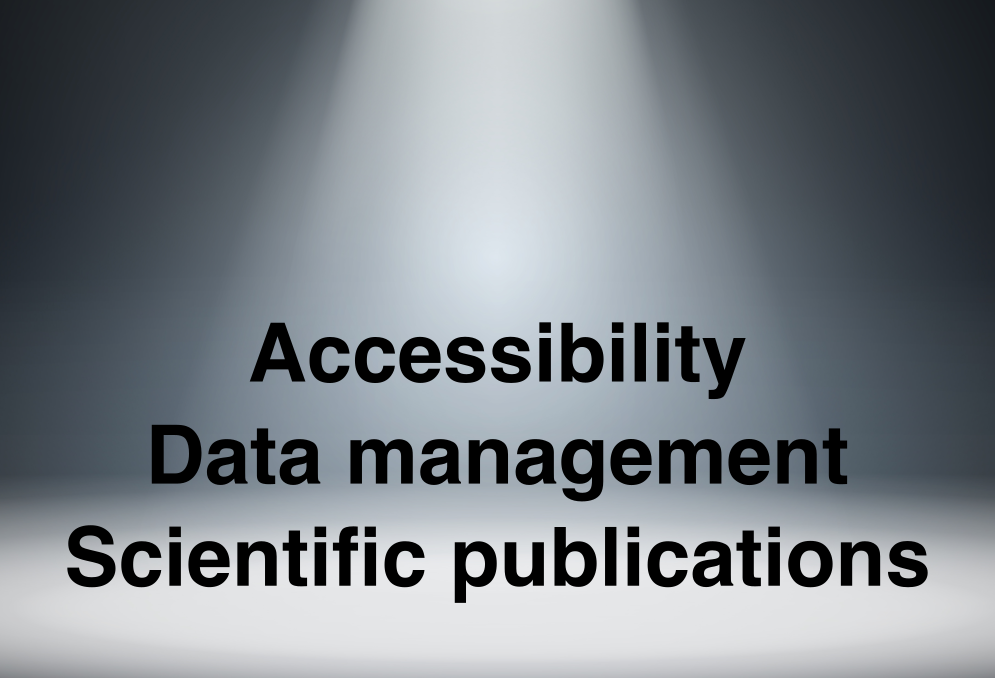1.3 Science and society: COVID-19 example
Section outline
-
-
The social media, science and politics: how COVID-19 made science processes mainstream
The recent COVID-19 pandemic has highlighted the long-standing need for more openness in science. This includes collaboration, knowledge-sharing, and exchange of ideas. A major aspect of this phenomenon has been the need for open research data in order to “accelerate the pace of research critical to combating the disease” (source: Why open science is critical to combatting COVID-19).
The emergence of the new virus that we knew very little about put an enormous pressure on the governments to make quick decisions based on scarce data.
Moreover, public opinion was swayed by the fake news, emerging discussions by non-experts - including celebrities - on social networks as well as a number of harmful conspiracy theories.
 As this global crisis shows, the world of science cannot be perceived as an ivory tower. Instead, we need to see scientists as important actors who interact both with societies and with politicians in an active fashion.
As this global crisis shows, the world of science cannot be perceived as an ivory tower. Instead, we need to see scientists as important actors who interact both with societies and with politicians in an active fashion.
They need to be actively involved in the public debate, present their research results in an accessible way and offer recommendations for public policy. -
The Lancet article affair: a question of data
The medical journal The Lancet is one of the oldest and most reputable journals in its field. It has recently fallen from its pedestal following thewithdrawal of a study on hydroxychloroquine based on unreliable data. A look back at this case highlights the importance of access to source data.
In relation to this case, researchers from around the world wrote an open letter to report numerous irregularities related to the number of COVID-19 cases in different countries.
Quoting from the open letter:The authors have not adhered to standard practices in the machine learning and statistics community. They have not released their code or data. There is no data/code sharing and availability statement in the paper. The Lancet was among the many signatories on the Wellcome statement on data sharing for COVID-19 studies.Thus, the whole issue revolves around the question of data, or rather the lack of access to data and the impossibility of verifying it, which is synonymous with the inability to conduct reliable scientific research. -
Consequences
This appears undoubtedly as a major scandal in the field of medical research. It is all the more acute because it concerns an emergency situation - a pandemic caused by a previously unknown virus, which, of course, causes fear, but is also connected with the rise of conspiracy theories and the appearance of fake news. Currently, we are facing not only the health and economic consequences of a pandemic caused by a new coronavirus, but also - as many experts emphasize - an equally dangerous phenomenon accompanying it. This is the so-called infodemic which is a flood of false or misleading information about the virus, disease, etc.
This phenomenon is intensified especially in a situation where scientific publications and experts have been discredited and part of the society has stopped trusting them.
Also, hasty political decisions were made as a result of blind faith in scientific publications. The consequences turned out to be catastrophic, and eventually the WHO decided to "restart" research programs on hydroxychloroquine.
The issue concerns the basic principles that should govern science: transparency and rigorous evaluation of results before publication. In this case, both elements were missing.
-
 At the same time, however, the positive aspects of this situation should be noted. As a consequence, the general public was acquainted with the issues and problems of scientific publications. Moreover, for the first time the issue of open access to data, as well as sharing and managing it, has reached such a large group of people not involved professionally in scientific research. As a result of this case, a large part of the society began to take an interest in the issue of accessibility to data and could understand its importance not only in modern science but also in everyday social life.
At the same time, however, the positive aspects of this situation should be noted. As a consequence, the general public was acquainted with the issues and problems of scientific publications. Moreover, for the first time the issue of open access to data, as well as sharing and managing it, has reached such a large group of people not involved professionally in scientific research. As a result of this case, a large part of the society began to take an interest in the issue of accessibility to data and could understand its importance not only in modern science but also in everyday social life. -
European policy
Without any doubt, the COVID-19 crisis has challenged the way we view data and its relationship with contemporary society. This needs to be mirrored in European policy. Some actions were taken immediately.
For instance, a dedicated section of the European Data Portal (EDP) was created in order to offer verified information and data on COVID-19. It was updated between April and July 2020 and aimed “to ensure that everyone – even people without extensive data skills – can understand and gain insights from the available data”.
This also allowed the citizens themselves to become powerful actors who could collect, organise and analyse data and create useful datasets.
62 datasets and 60 data initiatives were collected as a result.
The EDP editorial team concluded by stating a need for “a cultural change, in which all of us become more data literate and embrace it as a valuable means of information for evidence-based decision-making”.
-
